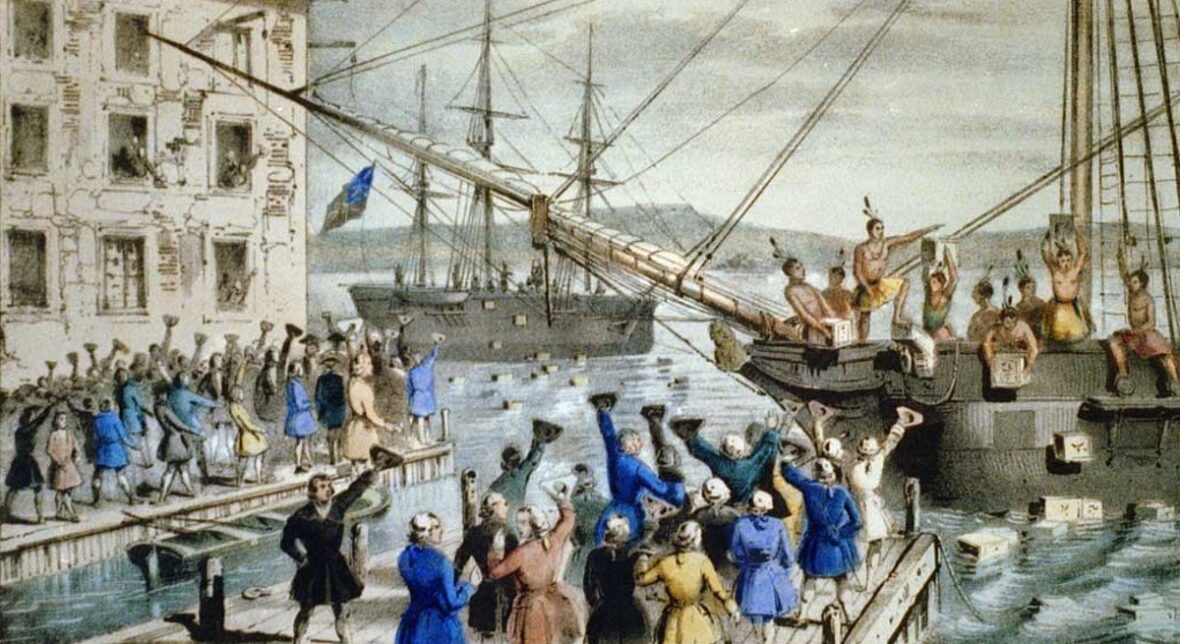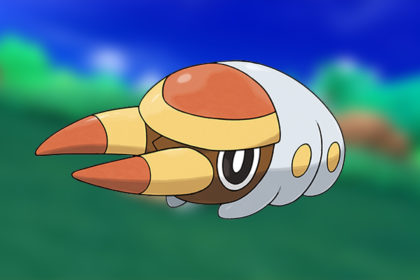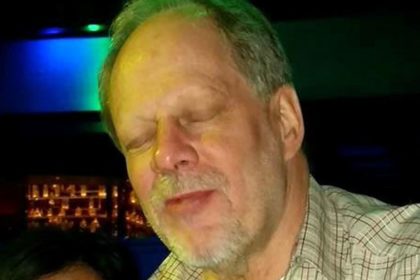Boston Tea Party was a historical event – one of the several key events – that eventually led up to the American Revolution. Take a look below for 30 fascinating and awesome facts about the Boston Tea Party.
1. A group of patriots known as Sons of Liberty were the people who organized the Boston Tea Party.
2. The entire group was led by a person by the name Samuel Adams.
3. The group – Sons of Liberty – was an all-male group that included males from all spheres of colonial society.
4. These men were common day laborers, apprentices, tradesmen, business owners, craftsmen, artisans etc.
5. Interesting to note is that they were all American colonists. None of them were Native Americans.
6. All these men came together for defending their rights and also for protesting and undermining the British Rule.

7. Sons of Liberty included the Boston Patriots which included people like Josiah Quincy, John Hancock, John Adams, James Otis, Dr. Joseph Warren and Paul Revere.
8. Encouraged and stirred up by the Sons of Liberty, more than 5,000 people came together at the Old South Meeting House.
9. The Old South Meeting House, at that time, was the largest public building in whole of Boston.
10. The gathering of those 5,000+ men took place on December 16, 1773 at 10 AM.
11. The purpose of the gathering was to decide what to do about the Tea and how they should organize the Boston Tea Party.
12. The simplest reason for the Boston Tea Party to happen was ‘Taxation Without Representation.’ Though it sounds simple, the background was pretty complex.
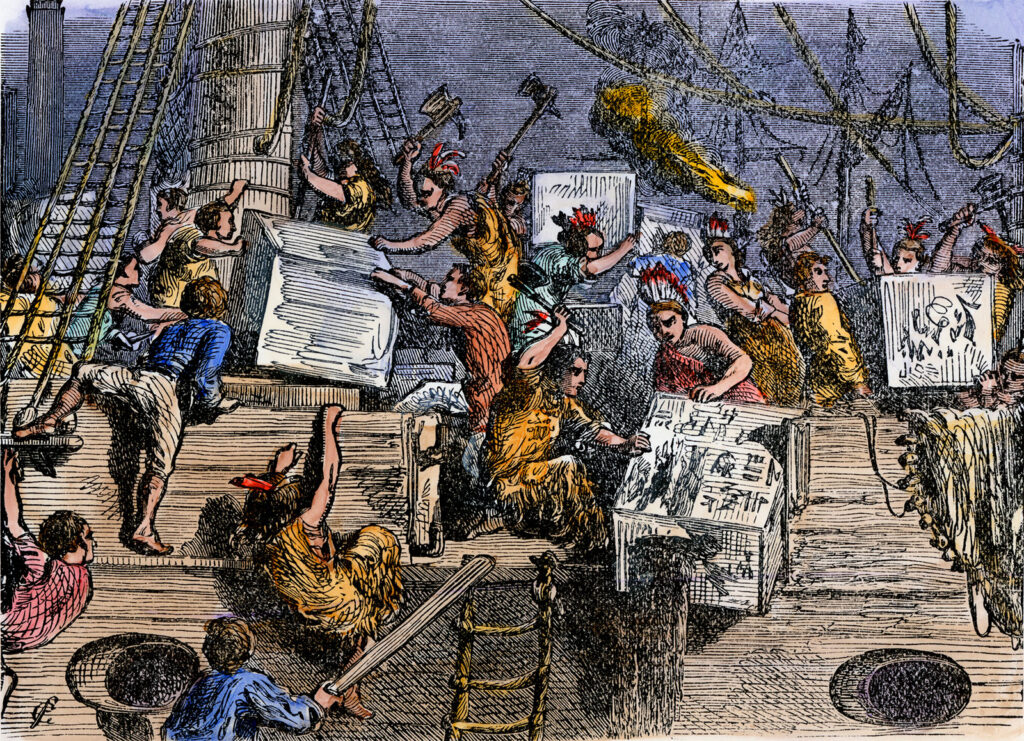
13. The American colonists held a notion that Britain was levying unfair amounts of taxes on them in order to pay for all the expenses that Britain incurred during the French and Indian War.
14. Apart from that, these colonists also believed that Britain had absolutely no rights of taxing them in the first place because they had no representation in the British Parliament.
15. From the dawn of the 18th century, importing tea into the American colonies had become a norm.
16. Some people estimate that nearly 1.2 million pounds of tea were consumed by the American colonists every year.
17. This did come into notice of Britain and Britain planned to make even more money from the tea trade. So, Britain decided to impose taxes on the American colonies, especially on tea trade. This made British tea very expensive.
18. No one liked it and the American colonists started building a very lucrative industry based on tea smuggling. They started smuggling in tea from various other European markets and even the Dutch.
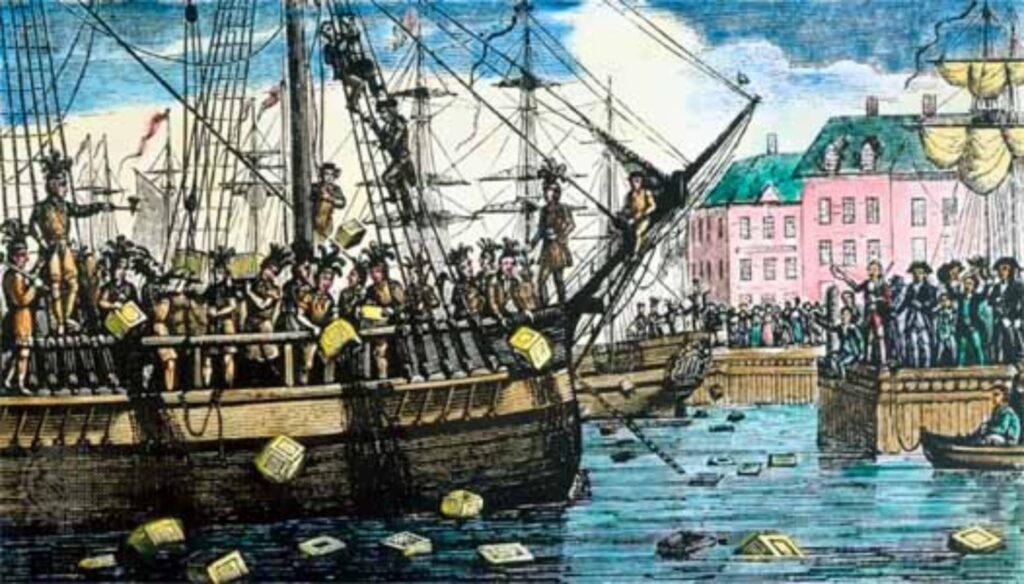
19. The smuggling activities that the American colonists were engaged in were in direct violation of the Navigation Acts that was active since mid-17th century.
20. To curb the problem, the British Parliament passed what is known as Indemnity Act in the year 1767. The real reason for this act was to reduce the price of British tea by repealing the tea tax and bring the cost of British tea at par with that of the Dutch tea.
21. This move by the British Parliament did not come out of thin air. The smuggling activities of the American colonists was responsible for undercutting the British tea trade that was very lucrative for Britain.
22. Because of the Indemnity Act, the smuggling activities were significantly reduced as the tea prices came down. This was only temporary.
23. Then followed the Townshend Revenue Act of 1767 which once again imposed new taxes on tea.
24. Tea was not the only target of the Townshend Act. This act also targeted other commodities like paper, paint, oil, lead and glass.

25. As before, the new taxes were not acceptable to the American colonists and they started protests and boycotts.
26. As a result of such widespread protests and boycotts, Britain decided to remove the taxes imposed by Townshend Revenue Act on every commodity barring tea in the year 1770.
27. Three years later in 1773, British Parliament passed the Tea Act. This act give complete monopoly to the East India Company. Now, with the Tea Act in place, East India Company was the only company that could sell tea in all American colonies.
28. What followed was the resurgence of tea smuggling. Some American colonists like Samuel Adams and John Hancock made tea smuggling a very lucrative business.
29. The Townshend Revenue Act (that continued to impose tax on tea) and the Tea Act together outraged the colonists. The most impacted were the big smugglers like Samuel Adams and John Hancock as their economic interests were hurt by the Tea Act.
30. They looked upon the Tea Act as a tool or a tactic for garnering support from the colonies for the tax that was already imposed by the Townshend Revenue Act.

